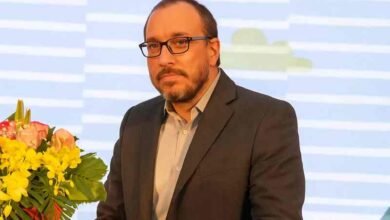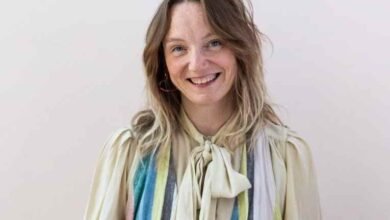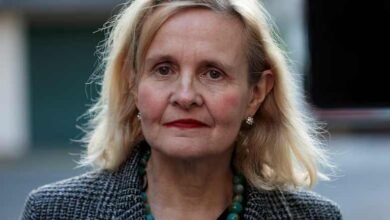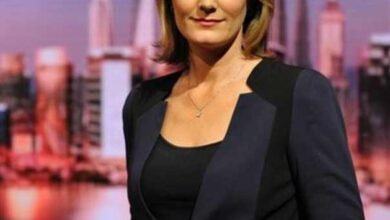Pauline Davies: From BBC Voice to Champion of Science Communication and Cancer Research Outreach
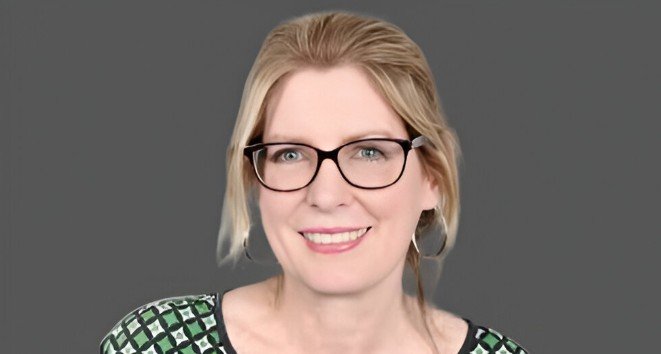
Pauline Davies has carved a unique path that bridges the worlds of broadcasting and academic science. Born and educated in the United Kingdom, she developed an early fascination with understanding how complex ideas can be conveyed clearly and effectively. Her academic foundation includes a Bachelor of Science with honours from the City of London Polytechnic, an education that equipped her with a solid grounding in scientific principles and analytical thinking. She also obtained a Further Education Teacher’s Certificate from York College of Arts and Technology, a qualification that later proved invaluable in her career as an educator and communicator. From the start, she demonstrated an ability to move comfortably between rigorous scientific training and the art of storytelling, a combination that would become the hallmark of her professional life.
Table of Contents
ToggleDistinguished Career in Broadcasting
Pauline Davies spent many years working for the BBC World Service, where she became a respected and trusted science and health broadcaster. During this time, she developed a reputation for presenting complex scientific ideas in a way that was accessible and compelling to a global audience. Her programmes reached millions of listeners across continents, bringing topics such as fundamental physics, human origins, medical breakthroughs and public health issues to people who might otherwise never encounter them.
Her broadcasting work was not confined to the safety of the studio. She travelled widely, often reporting from areas experiencing conflict or facing significant public health challenges. From discussions about maternal health to the consequences of injuries in war-torn regions, she delivered stories that combined scientific accuracy with human empathy. Pauline’s voice became synonymous with clarity and authority, but also with compassion and an understanding of the human side of science and medicine. Her work at the BBC demonstrated that she was not just a communicator of facts but also an interpreter of the human condition through the lens of science.
Transition to Academia and Arizona State University
After years of success in broadcasting, Pauline Davies chose to take her passion for science communication into academia. She joined Arizona State University (ASU) as a Professor of Practice at the Hugh Downs School of Human Communication. The title of Professor of Practice reflects her exceptional professional experience and her commitment to bringing real-world expertise into the academic environment.
At ASU, she quickly became known as a leading voice in science outreach and public engagement. Her role is multifaceted: she teaches undergraduate and honours courses, mentors students, and designs programmes that help scientists share their work with a broader audience. She has also been active in university governance, serving in the University Senate and even taking on the role of President of the Tempe campus Senate. This combination of teaching, service and outreach highlights her dedication to both her students and the wider academic community.
Leadership in Cancer Research Outreach
One of Pauline Davies’s most significant contributions at ASU has been her leadership in outreach and education for major cancer research initiatives. She played a central role in the National Cancer Institute’s Physical Sciences and Oncology Center at ASU, helping to translate complex scientific research into messages that the public and policymakers can understand. Her ability to explain the intricate interactions between physics and cancer biology made her an essential bridge between scientists and society.
She currently leads outreach for the Arizona Cancer Evolution Center, a pioneering research hub that explores the evolutionary principles driving cancer development and resistance. This work requires a rare combination of scientific literacy, communication skill and sensitivity to the concerns of patients and families. Pauline’s efforts ensure that groundbreaking research does not remain locked in laboratories but instead reaches those who can benefit from it, whether they are medical professionals, patients or members of the public who seek to understand the science of cancer.
Focus on Physician Wellness and Burnout
Beyond cancer outreach, Pauline Davies has devoted attention to one of the most pressing issues in modern healthcare: the well-being of physicians and the problem of burnout. Collaborating with partners such as the Mayo Clinic, she has worked on initiatives designed to build resilience among healthcare professionals. Her recent work includes co-editing the book Physician Wellness and Resilience: Narrative Prompts to Address Burnout, which offers practical guidance and reflective exercises to help doctors cope with the intense demands of their profession.
This focus reflects her belief that the health of those who care for patients is just as important as the treatment of patients themselves. By addressing physician burnout, she contributes not only to the personal lives of medical professionals but also to the quality of care patients receive. It is another example of her ability to identify issues at the intersection of science, medicine and society and to address them through thoughtful communication and education.
Teaching and Mentorship
As a Professor of Practice, Pauline Davies brings her extensive real-world experience into the classroom. She teaches courses such as Introduction to Human Communication and guides honours students in their theses and directed studies. Her students benefit from her ability to combine academic theory with practical insights drawn from her career as a broadcaster and science communicator.
Mentorship is central to her approach. She encourages students to think critically about how complex ideas can be explained to diverse audiences, equipping the next generation of communicators and scientists with the skills needed to engage effectively with the public. Her classroom is a space where rigorous analysis meets creativity, reflecting her own professional journey.
Awards and Recognition
Throughout her career, Pauline Davies has earned recognition for both her broadcasting and academic work. Her programmes for the BBC World Service received international acclaim for their depth and accessibility. At ASU, she has been acknowledged for her contributions to outreach and her leadership in the university’s governance. While awards and titles underscore her achievements, it is her lasting impact on students, colleagues and the public that best measures her success.
Bridging Science and Society
What makes Pauline Davies particularly remarkable is her ability to act as a bridge between scientific research and the wider world. In an era when misinformation can spread rapidly and public trust in science is often tested, her role is vital. She shows that it is possible to present complicated research clearly and accurately without sacrificing nuance or oversimplifying. Her career demonstrates the power of communication to inspire curiosity, inform public debate and ultimately improve lives.
Continuing Influence and Future Directions
Today, Pauline Davies continues to work at the cutting edge of science communication and outreach. Her efforts in cancer research education, her initiatives to promote physician wellness and her dedication to teaching ensure that her influence extends well beyond the university campus. She embodies the principle that science should not exist in isolation but should be shared openly and responsibly with all who wish to learn.
Her work offers a model for how professionals in any field can combine expertise with public service. By translating science into stories that resonate with people from every background, she contributes not only to the advancement of knowledge but also to a more informed and healthier society.
Conclusion
Pauline Davies stands as a powerful example of how a career can unite media, science and education. From her early days as an award-winning broadcaster with the BBC World Service to her current role as Professor of Practice at Arizona State University, she has dedicated her life to making science understandable and meaningful. Whether guiding students, leading outreach for pioneering cancer research or addressing physician burnout, she proves that communication is not just about words but about building connections that matter. Her story reminds us that when science meets empathy and clarity, it can change lives and shape a better future.
